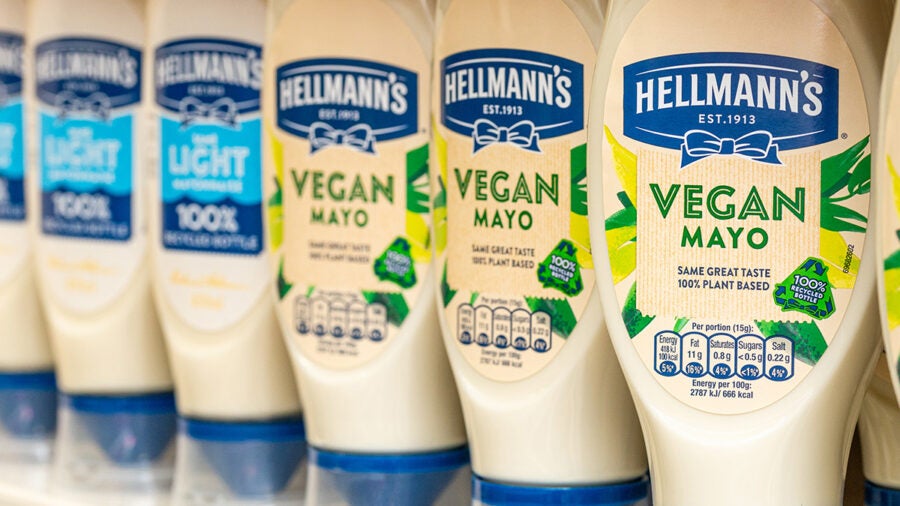
Has Unilever, as one of its better-known investors, Terry Smith, claimed last year, “lost the plot”?
The bastion of purposeful business is apparently turning its back on the concept, which might mollify Smith. The influential fund manager was criticising the decree issued by Alan Jope, Unilever’s CEO at the time, that all of its brands should stand for something.
Jope’s successor, Hein Schumacher, seems to have rescinded that edict. Purpose can, he told investors on a results call last week, be an “unwelcome distraction” for some brands and “irrelevant” for others.
“I believe that social and environmental purpose is not something we should force fit on every brand,” he added.
This change of policy comes after years of disappointing growth for the company, which owns household names including Ben & Jerry’s, Hellman’s, Marmite and Persil. Schumacher, only the second outsider to be named CEO of Unilever, admitted that the firm had also “underdelivered” on productivity and shareholder returns as he set out a strategy focused on building a “performance culture”.
Is his new plan the right one? Or is toning down the purpose element an unnecessarily risky gambit?
The case for moving away from brand purpose
Unilever is one of a growing number of firms that have faced a backlash for taking a clear stance on a controversial issue. In an increasingly polarised world dominated by social media, any given view, let alone a bold one, inevitably attracts vociferous opposition.
For instance, Ben & Jerry’s drew a storm of criticism for refusing to sell ice cream in Israeli-occupied parts of the West Bank in 2021 before Jope told it to steer clear of geopolitics. The brand has since sold its Israeli operation and not commented on the latest upsurge of armed conflict in the region.
I believe that social and environmental purpose is not something we should force fit on every brand
The list of brands that have put their heads above the parapet in recent times and suffered the consequences includes Costa Coffee, Bud Light, Dr Martens and NatWest. All were subjected to social media pile-ons for being “woke” – that is, taking what were deemed insincere stances on ethical issues that were (supposedly) at odds with what most of their customers believed.
The risks posed by a reputational hit are heightened in a period of economic uncertainty. Businesses worldwide are dealing with high inflation and interest rates, supply chain volatility and weak demand. That makes leaders, boards and investors nervous. Such difficult conditions also prompt customers to focus more on price than purpose.
Consumers are also losing faith in the whole concept of purposeful business, given the growing number of companies being accused of greenwashing and/or social washing. Too many firms extol the virtues of inclusivity while their leadership teams still comprise mostly white men, for instance. Or they talk about their positive ecological impact while continuing to pollute the Earth with single-use non-biodegradable plastic packaging.
Why purpose is still important
Yet this apparent U-turn is a risk for Unilever. As it states on its website, the business and its reputation have been built on a commitment to “making sustainable living commonplace”. Purpose is baked into how the firm operates – so much so that, when Kraft Heinz tried to acquire it in 2017, John Sauven, Greenpeace UK’s executive director at the time, offered to help repel the hostile bid, according to The Times.
According to Unilever’s own figures, its commitment to sustainable practices such as improving the energy efficiency of its factories helped the business to achieve cost savings exceeding €1bn (£870m) between 2008 and 2020.
And in 2021, the firm described its commitment to sustainability as a “real talent magnet”, citing research which found that, in 54 of the 75 markets where it tracked employee engagement, this was the main reason why respondents had chosen to work for Unilever.
When Smith claimed that Unilever had lost the plot last year, he cited Hellmann’s in arguing that Jope had taken its emphasis on purpose too far. He stated that the mayonnaise brand had “existed since 1913, so we would guess that by now consumers have figured out its purpose: (spoiler alert) salads and sandwiches”. Yet sales of Hellmann’s grew 20% in H1 2022 – and Unilever attributed this partly to its “make taste, not waste” ads, which advised people to cover their leftovers in mayo and eat them instead of discarding them.
It would seem, then, that Unilever should not be rowing back on purpose. The concept is too core to the firm’s positioning in the market, the way it operates and how it attracts talent, even if it has been taken too far for the liking of certain institutional investors.
Schumacher is partly right, in that the firm must focus on building a “performance culture”. Yet that needn’t come at the expense of its sustainability work. Purpose and profit must be the mantra. Because the world needs more companies working to reduce their environmental impact, not fewer.

Has Unilever, as one of its better-known investors, Terry Smith, claimed last year, “lost the plot”?
The bastion of purposeful business is apparently turning its back on the concept, which might mollify Smith. The influential fund manager was criticising the decree issued by Alan Jope, Unilever’s CEO at the time, that all of its brands should stand for something.
Jope’s successor, Hein Schumacher, seems to have rescinded that edict. Purpose can, he told investors on a results call last week, be an “unwelcome distraction” for some brands and “irrelevant” for others.
